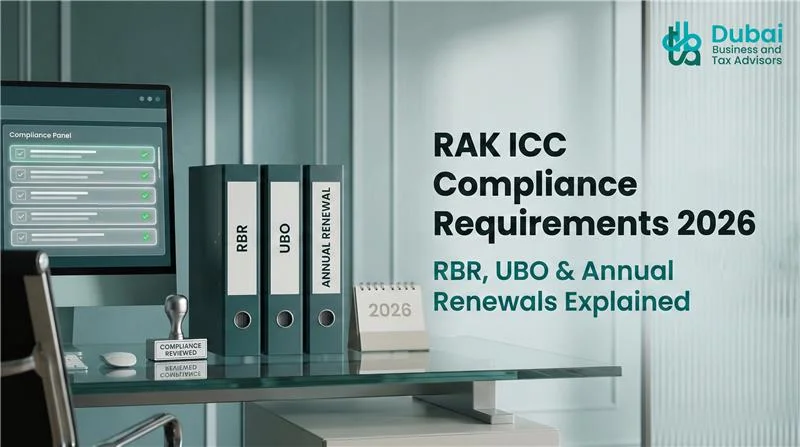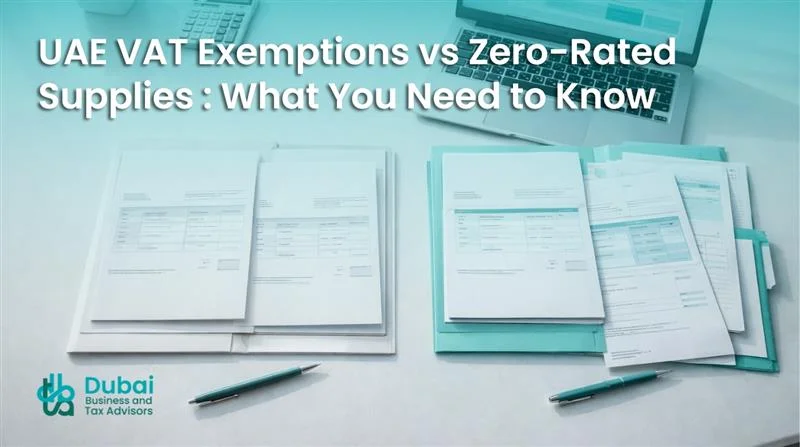Expert Statutory Audit Services in Dubai, UAE:
Each year in the UAE, more than 640,000 companies register under the new corporate tax regime, making annual statutory audit not just a formality, but a strategic necessity. At Dubai Business & Tax Advisors, we offer statutory audit services that go beyond compliance: we empower your business with insights, risk mitigation, and cross-border clarity. Our statutory financial audit ensures you meet UAE statutory audit requirements while unlocking the benefits of statutory audit as your strategic partner.

- 10+ Years Of Experience
- 1500+ Audit Completed
- Financial Experts
- 2500+ Consultation
Why Internal Audit Is Critical to Your Business
Internal audit is not merely a compliance exercise, it’s a proactive tool that gives you clarity over your governance, risk, and control environment. When well executed, it surfaces issues before they escalate into costly problems and complements your statutory audit process.
With regular reviews, you gain objective insight into how your operations, processes, and controls are functioning, including where improvements are possible. It becomes a mirror for your business, reflecting inefficiencies, control gaps, or hidden risks that might also affect your statutory audit requirements.
For organizations with growth ambitions or complex structures, internal audit helps you manage change confidently. It aligns your internal practices with strategy, regulatory expectations, and stakeholder trust, strengthening the foundations on which your annual statutory audit will rest.
You’ll see tangible benefits such as:
- Better risk mitigation through early identification of control failures or compliance gaps that might impact your statutory financial audit
- Operational efficiency enhancement by uncovering redundancies and bottlenecks before they affect audit outcomes
- Fraud detection and error prevention via rigorous checks, supporting your statutory audit services
- Strengthened stakeholder confidence with solid governance that bolsters confidence in your statutory audit services in Dubai

Our Scope in Statutory Audit Services
As financial regulations grow in complexity across Dubai and the UAE, meeting statutory audit requirements is more than a compliance chore, it’s a strategic step toward credibility and trust. Every company subject to corporate tax or governed under UAE’s Commercial Companies Law must engage external audit professionals to review and verify their annual financial statements. We ensure your business complies with UAE statutory audit requirements and delivers robust statutory financial audit reports that stand up to scrutiny.
Our statutory audit services in Dubai cover a wide spectrum of obligations. Whether you operate on the mainland or within a free zone, we tailor the audit scope to your entity’s regulatory jurisdiction, financial profile, and stakeholder demands. Below is what we typically handle:
Accounting Services in Dubai
- Verification of annual statutory audit accounts including balance sheet, profit & loss, cash flows
- Review of accounting records, internal controls, and transaction trails
- Assessment of provisions, valuations, bookkeeping practices, and adjustments
- Examination of contracts, leases, fixed assets, loans, payables & receivables
- Reconciliation of bank statements and supporting documentation
- Testing regulatory disclosures, tax compliance, and statutory dues
- Liaison with authorities and guidance on meeting statutory audit requirements
Why Dubai Business & Tax Advisors for Statutory Audit?
Choosing the right auditor is more than compliance, it reflects your commitment to transparency, governance, and growth. At DBTA, we don’t just deliver statutory audit services, we partner with you to turn audits into strategic insights. Backed by deep cross-border tax experience, our team ensures your audits are robust, credible, and aligned with your long-term goals.
- Regulated from Anywhere
- Trusted Expertise & Support
- Transparent Pricing & Clarity
Still confused about taking your decisions?
Expertise
We combine strong auditing credentials with cross-jurisdictional tax insight, giving you a statutory financial audit that also factors in strategic risk and compliance.
Ease
From streamlined onboarding to digital reporting dashboards, we make your annual statutory audit process smooth, reliable, and minimally disruptive.
Clarity
We provide plain-English reports, visual aids, and actionable recommendations, so you clearly see the benefits of statutory audit, not just numbers on a page.
Process of Statutory Audit in Dubai & the UAE
At DBTA, our statutory audit services follow a streamlined, transparent process. We design it to not just satisfy UAE statutory audit requirements, but to give you confidence, clarity, and strategic insight. From planning to reporting, every stage is mindful of your business rhythms, we aim to cause minimal disruption yet deliver maximum audit value.
Below, you’ll see the key steps we follow, each purposefully structured to uphold rigor, efficiency, and alignment with your goals:
Planning & Risk Assessment
We start by diving into how your business operates, your structure, industry, past financials, and risk profile. That analysis helps us define a statutory financial audit scope tailored to your unique needs. We pinpoint focus areas, set expectations clearly, and align everything with statutory audit requirements, so there are no surprises.
Document Review & Fieldwork
Our team collects, inspects, and validates your accounting records, contracts, reconciliations, and supporting documents. We test internal control processes and transaction trails in line with accepted statutory audit services standards. This phase ensures your data is reliable before we move to deeper substantive work.
Testing & Substantive Procedures
Here we perform rigorous testing of assets, liabilities, income, expenses, and disclosures. Every procedure supports your annual statutory audit, verifying account integrity and identifying material misstatements, all while respecting relevant statutory audit requirements.
Audit Adjustments & Finalisation
When issues emerge, we discuss proposed adjustments with your management team. We reconcile figures, finalize estimates, and close accounts. At this point, your statements are fully aligned with statutory audit requirements, compliant and consistent with your business story.
Reporting & Management Letter
Finally, we deliver your audited financial statements along with a management letter that captures findings, observations, and advice. This reinforces the benefits of statutory audit, giving you meaningful clarity, elevated governance, and actionable insights from your audit.
What Damages Can Delaying Audit and Assurance Cause Your Business?
Delaying your audit or assurance engagements isn’t just a timing issue, it risks your reputation, compliance posture, and financial stability. Slow audit turnarounds often invite regulatory scrutiny, missed deadlines, or penalties under statutory audit requirements.
Postponed audits also weaken internal control feedback loops. Without timely assurance, errors or fraud may go undetected, increasing the cost of corrective action later. Moreover, stakeholders and lenders may view delay as warning signs.
In cross-border contexts, delays complicate your statutory audit services in Dubai or UAE, aggravate tax exposures, and may disrupt your entity’s credibility across jurisdictions.
You might face:
- Regulatory fines or penalties for non-compliance with UAE statutory audit requirements
- Reputational damage with banks, investors, or business partners
- Increased financial risk due to undetected errors, fraud, or misstatements
- Delayed decision-making as management lacks up-to-date, reliable financial data
- Additional audit costs or re-audits if initial work is rushed or incomplete


Let’s Get Started with Your Statutory Audit
If you’re ready to elevate your financial credibility and fully comply with audit regulations, the DBTA statutory audit team is poised to partner with you. We’ll own every phase, planning, execution, adjustments, and final reporting, delivering not just assurance, but actionable insights and clarity.
We don’t just audit, we help you grow smarter. With our cross-jurisdictional tax knowledge and deep audit experience, we uncover hidden risks, strengthen internal controls, and add strategic value so that your annual statutory audit becomes a growth tool, not just a formality.
- Expert audit leadership: senior advisors with cross-border tax insight oversee your engagement
- Comprehensive execution: we manage all documentation, testing, adjustments, and authority dealings
- Peace of mind & transparency: your audit will satisfy UAE statutory audit requirements and deliver real, clear value
Ready to begin? Click below to schedule your introductory audit consultation or request a tailored proposal, and take the first step in converting compliance into strategy. Gain confidence knowing your financials are verified, risks are flagged early, and your business is fortified. Reach out now to claim your audit readiness advantage.
Our Trusted Partners





Our Client Testimonials
Our clients, ranging from startups to multinational corporations in Dubai, benefit from our comprehensive and strategic approach to business advisory. Our team of highly qualified business and tax advisors takes pride in ensuring regulatory compliance, operational efficiency, and sustainable long-term success for businesses across various industries





Khalid Al Rashid
Layla Hassan
Omar Saeed
Noor Al Mazrouei
Faisal Hamdan
Connect with Reliable Dubai Business Consultants
Certified Chartered Accountants
Be stress-free with top-tier accounting and financial expertise in Dubai.
Ensure Data Confidentiality
Using advanced accounting technology and controls for data security.
Achieve Measurable Results
Making sure your financial strategy aligns with your goals and objectives.
Speak to an Expert! Call Now for a Free Consultation. +971568191060 or





